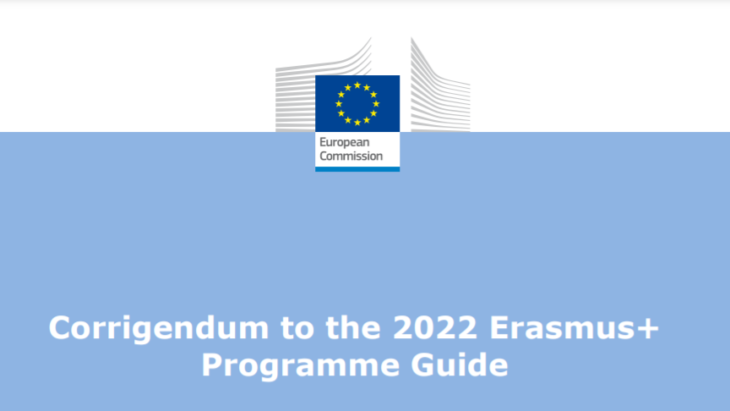Europe 2020 is a ten-year strategy proposed by the European Commission in 2010: the European Union has set ambitious goals for employment, innovation, climate and energy, education and social integration, to be achieved by 2020.
Each Member State has adopted its national objectives for each of these sectors and concrete actions have been planned to consolidate the Strategy.
In terms of education and training, in order to achieve the goals of smart, sustainable and inclusive growth, the School has put into practice the Europe 2020 strategy through participation in the various community programs; this is why the in-depth knowledge of the European project design tools is a fundamental element for the pursuit of the project objectives.
Erasmus+, the European program for education, training, youth
and sport, which celebrated 30 years of life in 2017, allows a concrete
experience of European citizenship and the relationship with new cultures and
different habits.
A life-changing experience.
During these 30 years, millions of young people have participated in an experience of mobility and exchange, coming into contact with the founding values of the European Union: freedom, democracy and solidarity.
Thanks to this experience, they have the opportunity to discover themselves therefore, participating at the same time in the construction of a more open and tolerant society.
In fact, Erasmus+ has proved to be an extraordinary tool for opening up, comparing and exchanging knowledge for all students animated by the desire and curiosity to live, study and grow in another European country, to improve not only their specific technical skills, but above all their soft skills, those abilities inherent the way of being and relating.
Many goals have been achieved in recent years, but what does the future hold for Europe’s longest running mobility program?
In the 2014-2020 period, Erasmus+ had a 40% budget increase compared to the previous phase, providing funding not only to universities, schools and training institutes, but also to “innovative partnerships”, ie to consortia and initiatives aimed at creating synergies between the world of education and the world of work, promoting innovation and an entrepreneurial spirit.
Aware of the importance of mobility, the European Parliament has recently approved a further budget increase, presenting some significant recommendations:
– in order to facilitate exchanges, the countries participating in the Erasmus+ program should more easily ensure the recognition of credits obtained by students in mobility;
– lifelong learning should become one of the key elements of the Erasmus + program, in order to favor students in the acquisition of personal and professional skills, functional to produce the increase in employment and, more generally, of the economic growth;
– vocational training should be rethought according to the digital economy, based on recent technological developments.
Furthermore, the European Parliament has given a positive opinion about the possibility of including Erasmus+ in an agreement to guarantee the continuation of the mobility agreements between the European Union and the United Kingdom even after the Brexit.
But the Erasmus affaire for the future is inspiring
the European Commission to build, by 2025, a European Education Area aimed at
strengthening the cultural dimension of the European Union, favoring the active
participation of young people in construction of a stronger Europe.
And that is why, last May 30, the European Commission launched its proposal for
the next Erasmus program, doubling the budget for the period 2021-2027 in order
to increase the number of beneficiaries.
According to the Commission’s intentions, the next program should continue to
apply to the Education and Training Bodies, committing to promote the inclusion
of individuals with fewer opportunities and to encourage activities in new
knowledge sectors, such as green economy, design, robotics engineering and
artificial intelligence.
And to actually realize these intentions, the Commission has already adopted a
package that includes:
• a general communication on “building a stronger Europe: the role of policies for young people, education and culture”;
• a “Strategy for youth” which reflects the importance the Commission gives to investing in young people and their future;
• automatic mutual recognition of diplomas and learning periods abroad to facilitate mobility in Europe;
• improving the teaching and learning of foreign languages;
• a new Agenda for Culture to raise awareness about the shared and diversified heritage of Europe, exploiting the potential of culture to build a more inclusive and fairer Union.
Therefore, sharing, growth and mobility to
promote European identity through the experience of travel.
In one word: Erasmus+.
What will be the next destination?



















